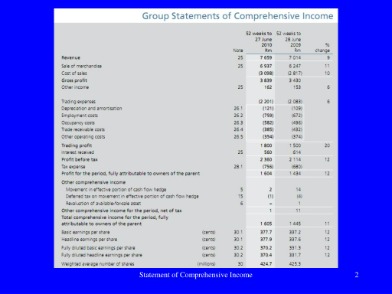Content

SSI disability benefits accrue from the date that you filed your application. Even though you may have been subsisting on very limited resources for months, you will not always receive your Back Pay immediately after your case is approved. Sometimes the Social Security waiting period is longer if your case must be decided by an administrative law judge. In addition, SSI Back Pay is paid incrementally only, meaning you won’t receive all of you Back Pay in a lump sum as you would with SSDI. The stated reason for the delay is that lump sum payments would put too much of a strain on SSI’s financial resources. In theory, overtime should be paid during the same period in which it’s earned. However, if you accidentally record your employees’ overtime hours as regular hours, you’ll need to pay the employee their increased overtime wages retroactively.
Back pay can be defined as the difference between the amount of pay a worker is owed versus what they actually received. Essentially, back pay is the term for wages that are owed to an employee for work done in the past. Yet, for whatever reason, the employer withheld these wages from the employee’s paycheck. Employees are owed back pay if their employer commits wage violations resulting in underpayment. The Fair Labor Standards Act requires employers to pay employees wages promptly on regularly scheduled paydays.
What is back pay and when do employers owe for back wages?
Social Security Disability Insurance Back Pay refers to benefits that you would have received from the time when you apply for benefits to when your claim is approved, minus a 5 month waiting period. SSDI retroactive back pay can also include compensation for when you were diagnosed with your disability to when you were approved for SSDI.
CFPB Orders TitleMax to Pay a $10 Million Penalty for Unlawful Title … – Consumer Financial Protection Bureau
CFPB Orders TitleMax to Pay a $10 Million Penalty for Unlawful Title ….
Posted: Thu, 23 Feb 2023 16:15:24 GMT [source]
TheWhat Is Back Pay? When Do I Need To Pay It? Act has provisions for recovering back pay, including for unpaidminimumandovertimewages. You should also check with yourstate’s labor departmentfor information on the laws in your location. When state law differs from federal law, an employer must comply with the standard most protective to employees. For example, if an employee resigns from a company, they are still owed wages for hours worked and should be paid theirfinal checkno later than the usual pay date for the last pay period worked. Depending on the intent of the employer there is either a two or three year statute of limitations when filing a claim for back pay or unpaid overtime.
How Do I Get My Unemployment Back Pay?
Often times those waiting for benefits accrue a lot of debt which makes the determination of the start date critical. Most of those approved won’t see any payments until months or possibly years down the road. Wrongful termination is one reason that an employee may claim that they are owed back wages. Unwarranted or wrongful dismissal may lead to a claim by an employee that they are due back pay for not only salary but benefits as well. Most employees in the United States are “at will” which means they can be fired at any time, for any reason or even no reason at all. There are several remedies for employees who are the victim of wage violations. They may also file a claim with the Department of Labor and request an investigation.
- It prohibits employers from discriminating against pregnant workers by failing to make reasonable accommodations that allow those workers to perform the essential functions of their jobs.
- The amount of time it takes an insurance company to complete the claims process and determine if back pay is due depends on the complexity of the case.
- The statute of limitations for back pay claims is two years for unintentional violations, or three years for willful underpayment.
As https://intuit-payroll.org/roll goes, these errors can lead to paychecks being smaller than they should be, and you’ll have to make up the gap with retro pay. Although calculating how much you owe isn’t that tough, it’s certainly easier with payroll software, which also minimizes the need for retro pay in the first place.

